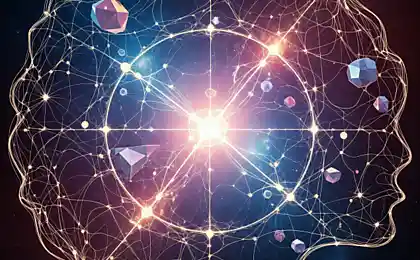This is the best recipe for happiness

Under the "I" more "We».
We've heard this phrase many times, and I myself, like all psychologists, often it is repeated. Although I fully agree with this, for me, it is increasingly clear that happiness really depends on both the internal and the external condition.
Excessive concentration on himself and exaggerated self-improvement leads to excessive egoism. American sociologist and journalist David Brooks, in his article for the "New York Times" wrote: "We live in the era of the Big I". Studies show that increased attention to the person keeps us feel a sense of satisfaction from my life.
Happiness does not occur in a state of isolation. We are social creatures and our health - both physical and spiritual - depend on contact with other people. According to a report on the global happiness for 2013, responsiveness and support of the society are in fact two strong indicators of well-being.
Many studies argue that the happiest people maintain close relationships with friends and family. No less important is social interaction outside the inner circle. According to studies, people who are more likely to interact with other people, just to be with strangers on a train or in line at the box office, most are in high spirits. Scientists studying the problems of behavior, calling it "a social snack." Perhaps the most useful snack in the world.
People are happier when they feel connected with others than when they are alone. And a burst of energy is felt not only by nature sociable people, but introverts.
Maintaining good relations invigorates and helps protect against stress. Building up stable relationships with social groups can help people when recovering from depression and to prevent a return of the disease. Senior active social behavior also has many advantages: people interact with society longer retain mental sharpness.
Stable relations go hand in hand with psychological stability. Harvard study of children who successfully develop after the trauma of childhood, explains:
«Why do some children can adapt and begin to enjoy life again, while the rest of the effects of trauma sneaked through his life and kill his potential? A growing body of evidence comes down to one answer: every child who begins to recover, maintain steady and trusting relationship with at least one adult ».
blockquote> In other words, psychological stability is not the result of willpower or personal desires of the individual, it is due to reliable and comfortable relationship with other people.
Belonging to a group or society helps us to feel part of something bigger, creates a sense of identity and belonging. David Brooks says:
«I have come to believe that the person flourishes in situations where it loses its sense of embarrassment and teaming up with other people ... and most often occurs in the course of dialogue».
blockquote> Well-being is most often not the result of focusing on their own happiness. real satisfaction we get when we do something for others, and together with them.
So when patients tell me, "I just want to be happy," I try my best to reduce their concentration on their own, "I».
via www.kinopoisk.ru/picture/1877733/
























